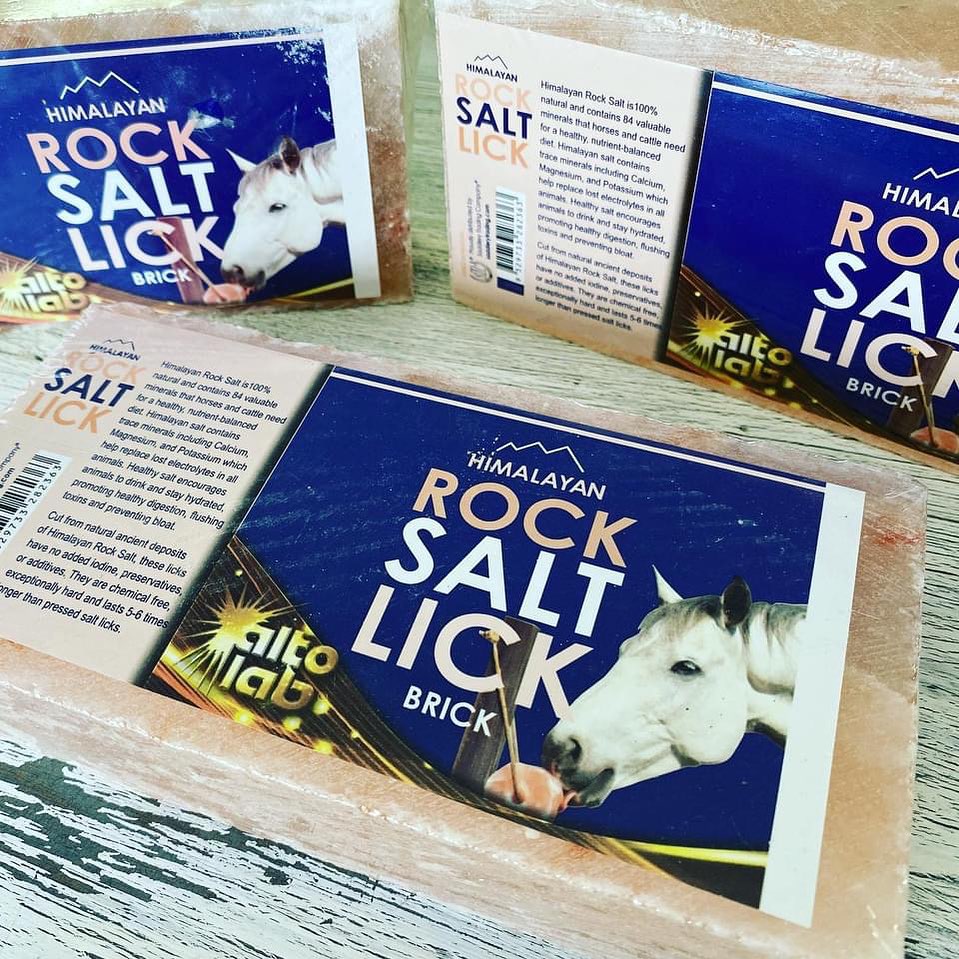The Vital Role of Salt in Equine Nutrition: Why Horses Need Their Daily Seasoning

As devoted caretakers of our equine companions, we strive to provide them with the best possible care and nutrition. Among the essential elements in a horse's diet, salt stands out as a crucial component, playing a pivotal role in maintaining their overall health and well-being.
Why Horses Need Salt:
-
Electrolyte Balance: Salt, composed of sodium and chloride ions, is a key player in maintaining electrolyte balance in a horse's body. These electrolytes are vital for various physiological functions, including nerve transmission, muscle contraction, and maintaining proper hydration levels.
-
Thirst Stimulation: Sodium chloride stimulates a horse's thirst, encouraging them to drink an adequate amount of water. Proper hydration is essential for digestion, nutrient absorption, and temperature regulation, particularly in active and working horses.
-
Sweat Loss Compensation: Horses lose significant amounts of salt through sweat, especially during strenuous activities or in hot climates. Replenishing these lost salts is crucial to prevent dehydration, muscle cramps, and other issues associated with electrolyte imbalances.
-
Preventing Deficiencies: While horses can obtain some salt from forage and other feed sources, these sources may not provide enough to meet their daily requirements, especially for working or performance horses. Supplementing their diet with a salt block or loose salt ensures they receive the necessary sodium and chloride.
-
Healthy Hooves and Coat: Sodium plays a role in maintaining healthy hooves and promoting a shiny coat. Adequate salt intake supports the overall structural integrity of hooves and contributes to a vibrant and healthy-looking coat.
How to Provide Salt to Horses:
-
Salt Blocks: Salt blocks are a convenient way to offer horses access to salt. They can lick the block at their leisure, regulating their intake based on individual needs.
-
Loose Salt: Adding loose salt to feed is the most effective method. This allows for precise control over the amount each horse receives and is particularly useful for picky eaters.
-
Balancing Diets: Work with a veterinarian or equine nutritionist to ensure that your horse's overall diet, including salt intake, is well-balanced and meets their specific needs.
You can view our range of salt licks and other electrolytes available to buy here.
In conclusion, salt is far more than a simple seasoning for our equine friends; it is an essential nutrient that contributes to their overall health, performance, and vitality. By understanding the importance of salt in their diet and providing it in an appropriate form, we can ensure that our horses thrive and lead happy, healthy lives.